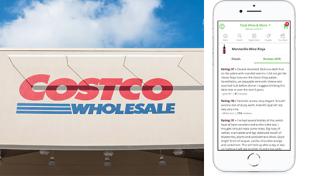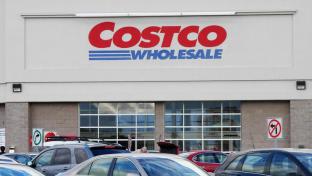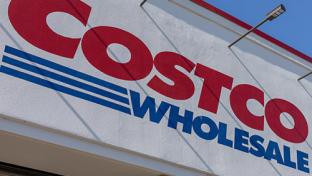Coronavirus Helps Sales Soar at Costco
The impact from coronavirus panic shopping helped Costco post an astonishing 11.7% increase in same-store sales for the month of February.
In its second-quarter fiscal report, the company said that February sales benefited from an uptick in coronavirus-related consumer demand in the fourth week of the reporting period.
"We attribute this to concerns over the coronavirus and estimate the positive impact on total and comparable sales to be approximately 3 percent," the retailer said.
Astonishingly, the comp increase could have been even higher, but the retailer has struggled to keep some products in stock in some markets. Company leaders said that the most popular items flying off shelves in the past few weeks include shelf-stable dry grocery items, cleaning supplies, Clorox and other bleaches, water, paper goods, hand sanitizers, sanitizing wipes, disinfectants, health and beauty aids, and even items like water filtration and food storage items. In response, Costco has placed purchase limits on certain items, depending on supply.
“We’re getting deliveries daily, but still not enough, given the increased levels of demand on certain key items. It’s been a little crazy this past week in terms of outside shopping frequency and sales levels, and not only in the United States,” CFO Richard Galanti said in an earnings call late on Thursday, March 5.
Not that Costco really needed a boost from throngs of shoppers buying toilet paper and Lysol wipes: The club retailer said that it also saw blockbuster sales over the crucial holiday shopping season.
"I think we've done a great job over the holiday season," Galanti said. "We've been helped by strong big-ticket categories like electronics, like patio furniture and lawn and garden, and other hardlines and softlines areas. Fresh continues to drive our business. As you know, when we're asked what are the two or three big factors that drive our business or categories, it's fresh, it's gas, it's executive membership. And again, utilizing those different buckets, even when sales are good, we want to be aggressive in pricing. And when sales are bad, we want to be more aggressive in pricing. It drives -- the top line improvements drive the bottom line."
For the second quarter ended Feb. 16, net sales at Costco increased 10.5% to $38.26 billion, from $34.63 billion last year. Same-store sales increased 7.9%, excluding gas. Ecommerce sales increased 28%.
Net income for the quarter was $931 million, or $2.10 per diluted share, compared with $889 million, or $2.01 per diluted share, last year.
Galanti said that coronavirus-related supply chain issues are a concern going forward.
"In terms of supply chain, we're finding other ways to handle any potential out of stocks by shifting SKUs to alternative items and categories, particularly in the areas of domestic goods, food and sundries, and fresh," Galanti said.
Costco also said that its travel business has been impacted due to reduced demand, as well as higher-than-normal cancellations of previously booked trips, particularly as it relates to cruises and international travel.
"At this point, it's hard to quantify what the financial impact will be for our future results. Again, the first week-and-a-half of this fiscal quarter, it's been -- the last week-and-a-half has been quite good with the sales, but we'll see what tomorrow brings," Galanti said.
Issaquah, Wash.-based Costco operates 785 warehouses worldwide, including 535 in the United States and Puerto Rico. The company also has ecommerce sites in the United States, Canada, the United Kingdom, Mexico, Korea and Taiwan.







